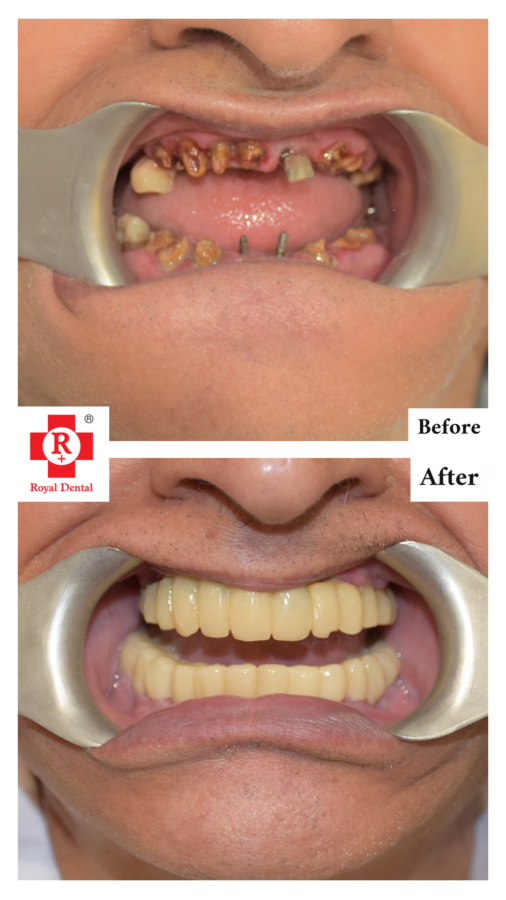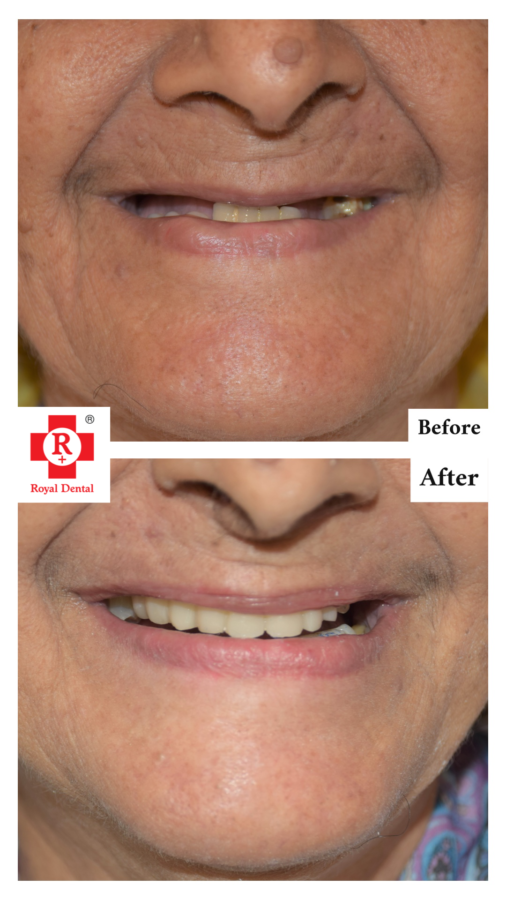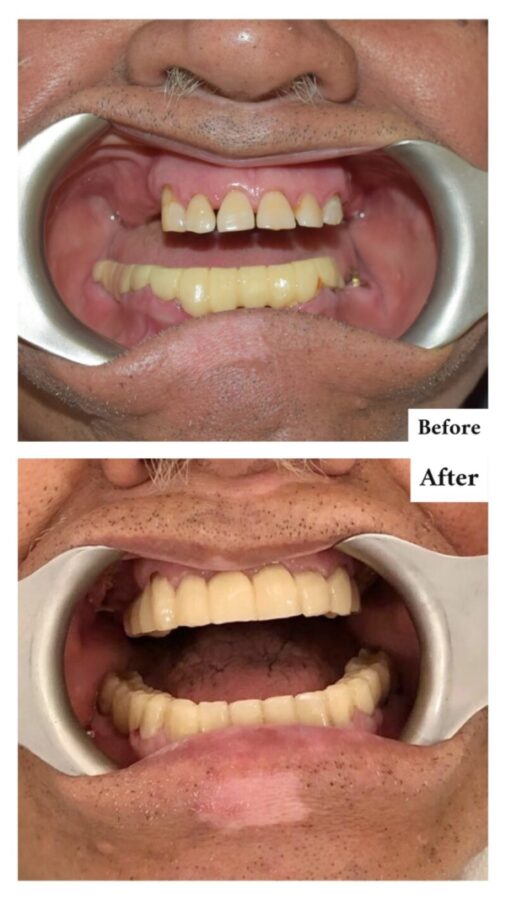As we age, our bodies undergo several changes, and our dental health is no exception. Seniors are more likely to experience tooth loss due to various reasons such as gum disease, decay, or injury. However, thanks to modern dentistry, dental implants have emerged as a game-changer for seniors. Unlike traditional dentures, dental implants offer a permanent solution that looks and feels like natural teeth. In this article, we will discuss the benefits of dental implants for seniors and the considerations you should keep in mind when considering this option. From improved speech and chewing ability to enhanced self-esteem, dental implants offer a multitude of advantages that can significantly improve the quality of life for seniors. So, whether you’re a senior or a caregiver, read on to find out why dental implants might be the perfect solution for you or your loved one.
Benefits of Dental Implants for Seniors
Improved oral health: They can help seniors maintain good oral health by filling gaps in their teeth that can lead to bacteria buildup, decay, and gum disease.
Better chewing ability: Missing teeth can make it difficult to chew certain foods, which can limit a senior’s diet. They can restore chewing ability, allowing seniors to eat a wider variety of foods and maintain a healthy diet.
Improved speech: Missing teeth can affect speech by causing slurring or mumbling. They can restore proper speech patterns, making it easier for seniors to communicate with others.
Improved appearance: They can restore a senior’s smile and improve their overall appearance. They look and feel like natural teeth, which can boost a senior’s self-confidence.
Long-lasting: With proper care, dental implants can last a lifetime, making them a cost-effective option for seniors.
Improved comfort: Dentures can be uncomfortable and cause sore spots, but they are anchored directly to the jawbone, providing a secure and comfortable fit.
Traditional Dentures vs. Dental Implants
Stability: Dental implants are more stable than dentures because they are anchored directly to the jawbone. Dentures rely on suction or adhesives to stay in place, which can be unreliable.
Comfort: Dental implants feel more like natural teeth and are more comfortable than dentures, which can sometimes rub against the gums and cause sore spots.
Durability: Dental implants are designed to last a long time, while dentures typically need to be replaced every few years.



Maintenance: Dental implants require the same level of care as natural teeth, including brushing and flossing. Dentures require more maintenance, including soaking and cleaning with special solutions.
Appearance: Dental implants look and feel like natural teeth, while dentures can sometimes look artificial or bulky.
Factors to consider before getting Dental Implants
Overall health: Before getting dental implants, it’s important to ensure that you are in good overall health. This includes having healthy gums and a strong jawbone, which are necessary for successful implantation. If you have any underlying health conditions, such as diabetes or heart disease, it’s important to discuss these with your dentist to determine if they may affect the success of the procedure.
Time commitment: Getting dental implants is a process that requires multiple appointments over several months. It’s important to consider the time commitment involved and whether it fits with your schedule. You will need to attend appointments for the initial consultation, implant placement, and the fitting of the prosthetic tooth.
Recovery time: After getting them, there is a period of recovery during which you may experience discomfort or swelling. It’s important to consider the recovery time and whether you can take time off work or other obligations to allow for proper healing. Your dentist will provide instructions for post-operative care and it’s important to follow them carefully to ensure a smooth recovery.
Lifestyle factors: Certain lifestyle factors, such as smoking or heavy drinking, can affect the success of dental implants. It’s important to discuss any lifestyle factors with your dentist before getting implants. If you smoke, your dentist may advise you to quit before getting implants to improve the success rate of the procedure.
Maintenance: They require regular maintenance, including brushing and flossing, and regular check-ups with your dentist. It’s important to consider the long-term maintenance requirements of dental implants before getting them to ensure that you are willing and able to properly care for them.
Dental Implant Procedure
The dental implant procedure typically involves several stages. First, the dentist or oral surgeon will evaluate the patient’s oral health and take X-rays or CT scans to determine the best placement for the implants. Next, the implants are surgically placed into the jawbone, and the patient is given time to heal and allow the implants to fuse with the bone.
Once the implants have fused with the bone, abutments are attached to the implants, which serve as the connection between the implants and the replacement natural teeth. Finally, custom-made replacement teeth are attached to the abutments, completing the process. The dental implant procedure typically takes several months to complete, but the end result is a permanent solution that looks and feels like natural teeth.
For more information read on:
Recovery and aftercare for Dental Implants
Immediately after the procedure: After the implant procedure, you may experience some discomfort, swelling, and bleeding. Your dentist will provide specific instructions for pain management and may prescribe medication to help manage any discomfort.
Rest and relaxation: It’s important to rest for the first few days after the procedure and avoid any strenuous physical activity that could disturb the implant. Try to keep your head elevated and avoid bending over or lifting heavy objects.
Ice packs: You can apply ice packs to your face for the first 48 hours after the procedure to reduce swelling and discomfort. Be sure to wrap the ice pack in a towel or cloth to protect your skin.
Oral hygiene: Good oral hygiene is critical for the success of dental implants. Be sure to follow your dentist’s instructions for brushing and flossing around the implant. You may need to use a special brush or mouthwash to keep the area clean.


Diet: For the first few days after the procedure, stick to soft foods and avoid anything that could potentially damage the implant. Your dentist will provide specific instructions for what to eat and when you can resume your normal diet.
Follow-up appointments: You will need to schedule follow-up appointments with your dentist to monitor the healing process and ensure that the implant is integrating properly with your jawbone.
Lifestyle modifications: If you smoke, it’s important to quit to improve the success rate of the procedure. You should also avoid heavy drinking during the recovery period.
Cost of Dental Implants for Seniors
The cost of them for seniors can vary depending on several factors, including the number of implants needed, the complexity of the procedure, and the location of the provider. However, they are generally more expensive than traditional dentures or bridges.
It’s important for seniors to consider the long-term benefits of dental implants when weighing the cost. While dentures may be less expensive upfront, they may require more frequent replacement and maintenance over time, which can add to the overall cost.
Frequently asked questions about Dental Implants
Q: Are dental implants painful?
A: The procedure typically involves some discomfort, but most patients report that the pain is manageable with over-the-counter pain medication.
Q: How long do dental implants last?
A: With proper care, they can last for many years, often decades.
Q: Can seniors with dentures switch to dental implants?
A: Yes, seniors with dentures can often switch to them. However, they may require additional procedures, such as bone grafting, before getting implants.
Q: Are dental implants covered by insurance?
A: Some dental insurance plans may cover a portion of the cost of dental implants, but coverage varies widely.
Success stories of seniors with dental implants
Meet Mr. Singh, a 70-year-old patient of Dr. Chirag Chamria at Royal Dental Clinics. Mr. Singh had been struggling with several missing teeth for years, but he was apprehensive about undergoing a lengthy dental implant procedure. Dr. Chamria explained the benefits of the All-on-4 dental implant system, which could provide him with a full set of teeth in just one day.
Mr. Singh was amazed by the idea of having a complete set of teeth in just one day and decided to proceed with the All-on-4 dental implant procedure. After a few hours of surgery, he walked out of the clinic with a brand-new set of teeth. He was amazed at how natural and comfortable they felt and was thrilled with the results.
With his new teeth, Mr. Singh could now eat his favorite foods and smile with confidence. He was grateful to Dr. Chamria and the team at Royal Dental Clinics for their expertise and compassionate care throughout the process.
Another patient, Mrs. Mittal, is an 80-year-old who had been struggling with dentures for years. She was frustrated with the constant maintenance and discomfort of traditional dentures and was looking for a more permanent solution. Dr. Chamria recommended the All-on-4 dental implant system, which could provide her with a full set of teeth in just one day.
Mrs. Mittal was skeptical at first but decided to give the All-on-4 dental implant system a try. After a few hours of surgery, she walked out of the clinic with a brand-new set of teeth. She was amazed at how natural and comfortable they felt and was thrilled with the results.
Implanting Taste of Life in One Day | Royal Dental Clinics | One Day Implant Dentist
With her new teeth, Mrs. Mittal could now eat her favorite foods and smile with confidence. She was grateful to Dr. Chamria and the team at Royal Dental Clinics for their expertise and compassionate care throughout the process.
In both of these success stories, Dr. Chamria and the team at Royal Dental Clinics were able to provide a life-changing solution for seniors struggling with missing natural teeth. With their expertise and innovative approach to dental implants, they helped restore confidence, improve oral health, and enhance the quality of life for their patients in just one day.
Conclusion
Overall, dental implants offer a multitude of benefits for seniors with missing teeth. From improved speech and chewing ability to enhanced self-esteem, they can significantly improve the quality of life for seniors. While there are several factors to consider before getting dental implants, many seniors find that the benefits outweigh the cost and the potential risks. If you or a loved one is considering them, be sure to research and choose a qualified provider who can ensure a successful outcome.






